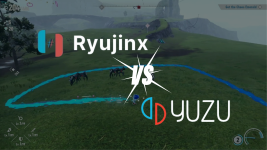"The beauty of games lies in their interactive nature, and the best games are those that masterfully balance narrative and gameplay."
Open-world games have revolutionized the gaming industry. They offer a unique blend of expansive environments and the freedom to explore. However, their narrative design often contradicts their gameplay features. This article delves into the paradox of open-world games and how developers are working to bridge the gap.
1. Introduction
The rise of open-world games has changed the scope and nature of gaming. These games offer players an expansive universe to explore at will, a stark contrast to the linear gameplay of traditional games. Yet, this freedom often comes at a cost; the expansive nature of open-world games often leads to a disconnect between the narrative and gameplay.
2. The Concept of Open-World Games
Open-world games, also known as sandbox games, provide players with a large, open environment where they can roam freely and pursue various tasks or missions.
Python:
class OpenWorldGame:
def __init__(self, name, environment, tasks):
self.name = name
self.environment = environment
self.tasks = tasksThis code snippet illustrates the basic structure of an open-world game.
3. The Clash: Storytelling vs Gameplay
3.1 Narrative Linearity vs Gameplay Non-linearity
The primary conflict in open-world games lies in the clash between a game's narrative and its gameplay. While traditional games follow a linear narrative structure, open-world games offer non-linear gameplay, which can be at odds with the storyline.
3.2 The Paradox
The paradox is that while the player is free to explore, their actions often have little impact on the overarching narrative. This dichotomy can lead to a disconnection between the player and the game's story.
4. The Impact of the Paradox
4.1 Disrupting Immersion
The paradox can disrupt players' immersion in the game. This is especially true when players' actions do not align with the progression of the narrative.
4.2 Inconsistent Character Development
The inconsistent relationship between narrative and gameplay can also affect character development. Characters may behave differently in gameplay than in cutscenes, leading to a disjointed experience.
5. Overcoming the Paradox
5.1 Integrating Gameplay and Narrative
Developers are working to integrate gameplay and narrative more closely. This can be achieved by ensuring that players' actions have tangible effects on the story.
5.2 Adaptive Storytelling
Adaptive storytelling is another solution. This involves the story adapting to the players' actions, creating a more cohesive experience.
6. Conclusion
Open-world games present a unique challenge in balancing narrative and gameplay. While the paradox is inherent, developers are finding innovative ways to bridge the gap. The future of open-world games lies in creating a seamless blend of narrative and gameplay, offering players a truly immersive experience.
Additional Information:
The advancement in technology is making it possible for developers to create more realistic and expansive open-world games. However, the challenge remains in crafting a compelling narrative that aligns with the freedom of gameplay.





